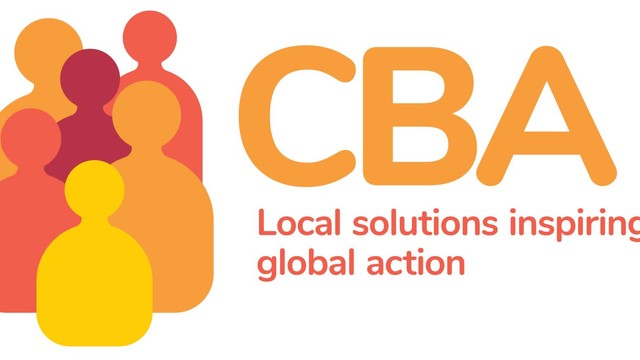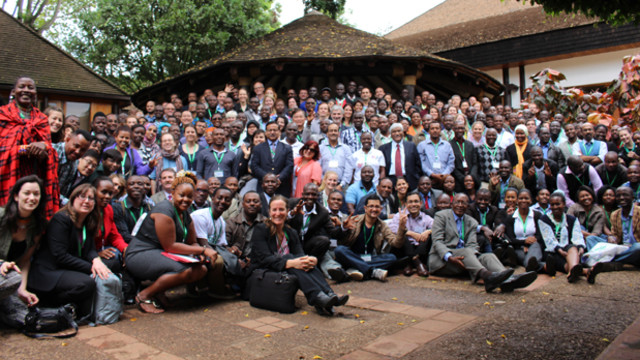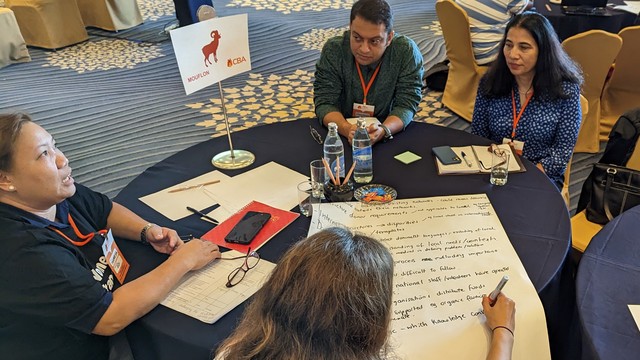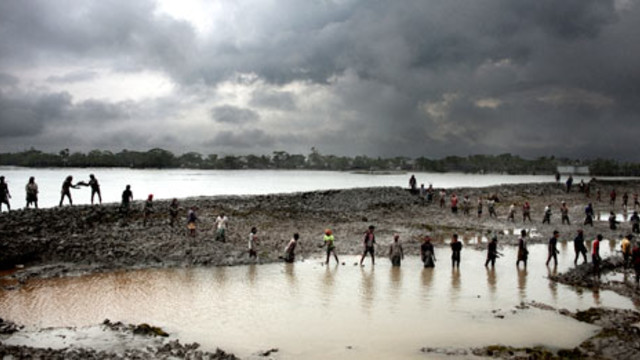Sharing knowledge on climate change adaptation in Brazil
The AdaptaClima online knowledge platform supports effective adaptation to climate change in Brazil by allowing users to share information and tools online.
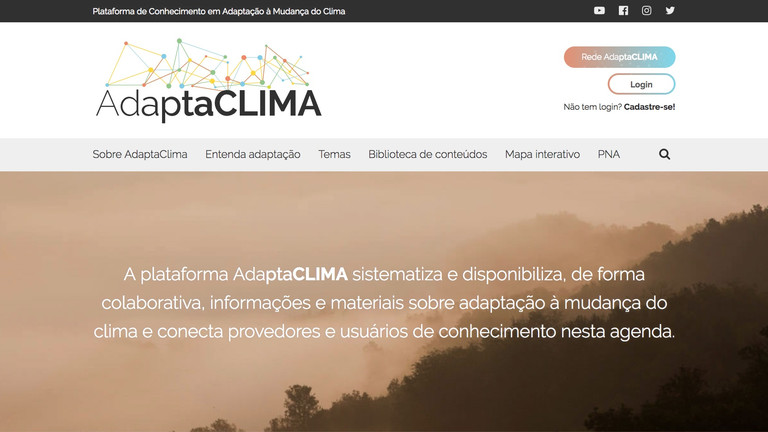
IIED worked with Brazil’s Ministry of Environment and the Center for Sustainability Studies of the São Paulo Business School of Getulio Vargas Foundation (GVces) to develop the online platform AdaptaClima to support climate adaptation in Brazil.
Project background
One of the main challenges to advancing the adaptation agenda in Brazil is enabling access to practical information on adaptation. The country has the world’s fifth largest land mass, with environments ranging from the Amazonian rainforest to rapidly developing megacities. It faces a wide range of climate risks, from sea level rise to droughts and flooding.
Stakeholders drafting Brazil’s National Adaptation Plan (PDF) identified a vital need for accessible information on climate adaptation, and the plan, published in 2016, called for the creation of an online platform on adaptation knowledge.
The project partners came together to develop the platform, with the work being supported by the British Council through the Newton Fund.
The project objectives were:
- To collate and make available information on priority topics related to climate change adaptation
- To promote communication and coordination between ‘knowledge producers’ and ‘knowledge users’, and
- To stimulate the production of information in response to the gaps identified.
AdaptaClima's ultimate aim is to improve Brazil’s ability to adapt to climate change.
A participatory development process
The development of AdaptaClima involved some 60 organisations in Brazil and 15 reference stakeholders in Europe. It was clear that a participatory process would be crucial for the platform to meet the needs of its very diverse stakeholders.
The partners agreed that an online platform was only the “tip of the iceberg” for the project; the platform would also need the support of a cohesive and active network of stakeholders and a consistent governance structure to ensure its sustainability.
AdaptaClima evolved via a highly participatory process involving public, business, civil society, financial, academic and international organisations. The great diversity of sectors and groups presented a challenge, as did the need to encourage balanced and effective participation of all of these groups.
The two-year development process included eight workshops in Brazil and the UK, six webinars, online testing, newsletters as well as online meetings and interviews with a wide range of stakeholders.
Local partner GVces identified local stakeholders and promoted engagement within Brazil. IIED focused on identifying key UK-based agencies and organisations that could provide specialised technical support on the development and assessment of climate adaptation components. The key stakeholders met for an inception workshop in Sao Paulo in early 2016 and agreed the project’s theory of change and general strategy, as well as key challenges, target audiences and measures of progress.
Laura Silici, who led the project on behalf of IIED, delivered a presentation about this inclusive co-creation process for AdaptaClima at the 3rd European Conference on Climate Change Adaptation (ECCA) in Scotland.
The development of the web platform itself started in April 2017. A major challenge for the developers was designing an interactive map that could use climatic data provided by partners, such as Brazil's National Water Agency (ANA), the Brazilian National Institute of Space Research (INPE), and the World Wildlife Fund (WWF).
AdaptaClima was formally launched in December 2017. Since its launch, the platform has beens coordinated and operated by Brazil's Ministry of Environment.
IIED has continued to support the initiative by facilitating additional interviews with UK stakeholders and providing feedback on the materials produced.
Benefits
AdaptaClima is connecting organisations working on adaptation across Brazil, spanning both regional and thematic differences. It has enabled positive examples of diverse organisations engaging with traditional communities. In addition, high quality research for specific themes and sectors is being developed and shared – for example, work on reducing greenhouse gas emissions from agribusiness carried out by Embrapa, which will be of interest to a wide range of audiences nationally and internationally.
AdaptaClima also provides a platform to share positive lessons and experiences from Brazil with stakeholders in other countries which may be tackling similar challenges.
It is allowing Brazilian organisations better access to relevant models and approaches being developed around the world.
Generating new research topics
The extensive consultation process adopted by AdaptaClima’s partners has generated new interest in the topic of social learning. New research will look at the impacts that the consultations and interactions between the various interest groups had on AdaptaClima’s key stakeholders, as well as on the process itself.
GVces and IIED are researching the social learning dynamics embedded in AdaptaClima’s development. The study aims to produce a social learning framework that can be used by other actors and initiatives focusing on climate change knowledge.
Additional resources
Partners
Donors
The British Council through the Newton Fund Institutional Links programme
